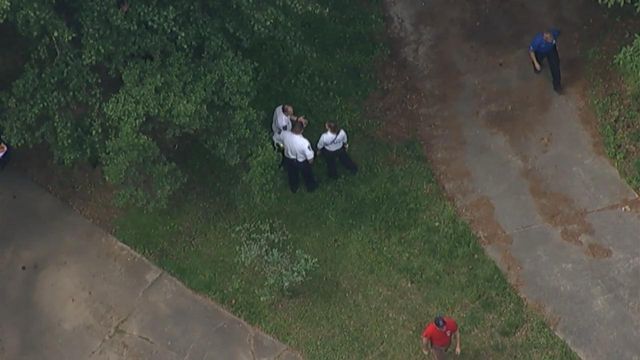COVID-19 vaccine during pregnancy: Helpful for mom and baby

Editor's note: This article originally appeared on UNC Health Talk.
Not long ago, pregnant women deciding whether to get a COVID-19 vaccine had to weigh their concerns about the coronavirus against the unknowns of new vaccines that hadn’t been tested in pregnancy.
Now, with all American adults eligible for a vaccine, evidence that pregnant women can and should get a COVID-19 shot is mounting. One, because we know that pregnant women are at higher risk for COVID-19 complications than people who are not pregnant. Two, because the vaccines appear to be safe and effective in pregnancy and even pass some immunity to the baby that may last for a time after birth.
“A few months ago, I was advising my patients to weigh their risk of infection versus the known—and elevated—risk of catching the disease in pregnancy,” says Dr. Brian Brimmage, an OB-GYN who delivers babies and performs gynecologic surgery at UNC Rex Hospital. “But now that we have this growing body of data showing that it is safe in pregnancy, I wholeheartedly recommend that my patients get the vaccine.”
Emerging Research on Pregnancy and the COVID-19 Vaccines
When the Pfizer and Moderna vaccines became available in December, there was no data on safety or efficacy in pregnancy because the vaccines had not been tested on pregnant women, which is standard procedure for clinical trials.
But a handful of women in the trials were pregnant and didn’t know it, so researchers have followed those pregnancies and newborns and have not seen negative effects.
What’s more, new research into thousands of pregnant women who received a vaccine found that they did not experience adverse outcomes, such as preterm birth or pregnancy loss, any more than pregnant women studied before the pandemic. Except for a sore arm, pregnant women were actually less likely to experience side effects such as fever and headache than women who weren’t pregnant.
Leading medical organizations such as the American College of Obstetricians and Gynecologists, the Society for Maternal-Fetal Medicine and the American Society for Reproductive Medicine have issued statements supporting the use of COVID-19 vaccines in pregnancy.
Do COVID-19 Vaccines Protect the Fetus?
There is early research that vaccinated mothers pass COVID-19 antibodies to their unborn children in utero, through the placenta. After the baby is born, these antibodies also are present in breast milk.
“We suspected early on that after maternal vaccination against COVID, antibodies would cross the placenta to the baby and provide some degree of protection in the first few months of life, but we are now seeing the data to prove it,” Dr. Brimmage says, adding that a similar process occurs when expecting mothers get the Tdap vaccine to protect against whooping cough.
Advice for Pregnant Women
If you’re pregnant, Dr. Brimmage advises talking to your doctor about the COVID-19 vaccines and any questions or concerns you have.
Pregnant women can receive any of the three available vaccines, from Pfizer, Moderna or Johnson & Johnson. Many pregnant women are choosing one of the mRNA vaccines (Pfizer and Moderna) because public health officials are investigating whether the Johnson & Johnson vaccine could be linked to an extremely rare type of blood clot.
Women who are considering a pregnancy in the near future or who think they might be pregnant also should get vaccinated, Dr. Brimmage says. There is no evidence, despite many social media falsehoods, that the vaccines have any negative effect on fertility, pregnancy or the placenta.









